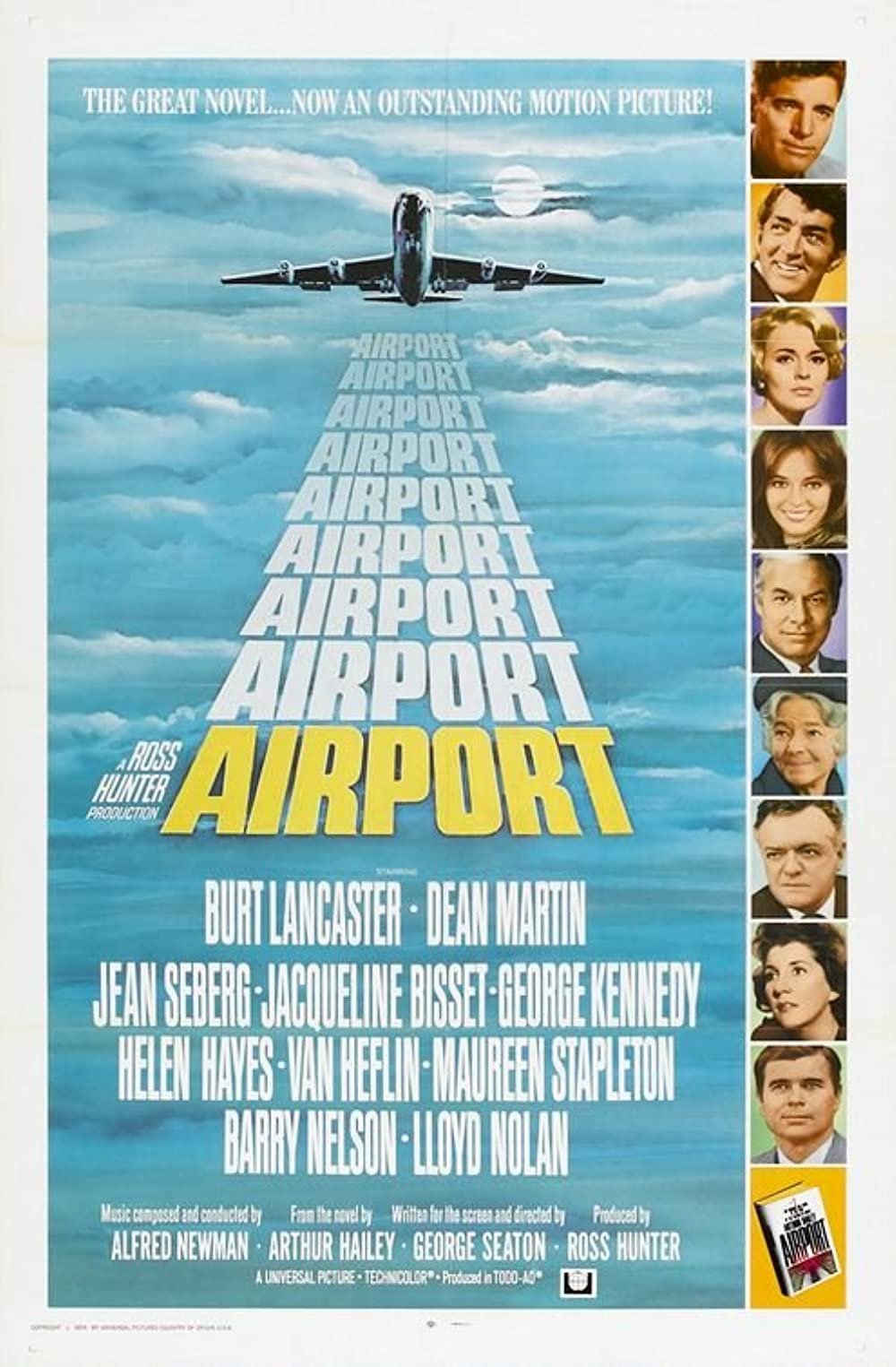#001 - Airport (1970)
/Airport (1970)
Directed by George Seaton
Starring Burt Lancaster, Dean Martin, Jean Seberg, Jacqueline Bisset, George Kennedy, Helen Hayes, Van Heflin, Maureen Stapleton
Written by George Seaton based on the novel by Arthur Hailey
DP: Ernest Laszlo
Music by Alfred Newman
Edited by Stuart Gilmore
A look at 100 movies of the 1970s has to start somewhere. So why does it start with Airport? Before I attempt to answer that question, let’s throw in some reasons why not. Or one reason: this is not a good film. In our memory we think of it as lots of stars boarding a plane that flies into disaster. That is what happens here but what we remember are the sequels or even Airplane! (1980, Zucker/Abrahams/Zucker). The original takes a lot of time with it stars before they’re even on the plane and then it still takes a long time until anything happens. When finally a bomb appears on the plane, it’s over so fast that you could forget it was even there when the movie is over. Even the climactic crash landing feels pedestrian.
So, why again starting with this one? One the one hand, this feels like an incredibly old-fashioned film, from a different decade. Most of the stars were famous in the 50s (or earlier), the pace is sluggish, the sexual politics are shockingly outdated (even for 1970) and it is hard to imagine a whiter film, as if the Civil Rights Movement never happened. Alfred Newman scoring the film, as if it’s still the 1940s, seems totally adequate in that regard.
First Shot of ‘Airport’
The film seems like an attempt to produce vintage entertainment to reign in the craziness of the 60s and to stop the crazier craziness of the 70s from happening. And it worked. The film was a box office hit and was showered with Oscar nominations (with Helen Hayes winning for being a cheeky old lady), despite lots of bad reviews. Instead of being disregarded as a misplaced relic, it had an impact, starting the disaster movie wave of the first half of the 70s (with The Poseidon Adventure becoming the go-to example of this decade) and producing sequels until 1979 (a practice that became standard from this decade onwards), which became more and more ridiculous and extreme, eventually trying to go with the zeitgeist.
Airport is my starting point because it has two feet in the past but reaches out with one arm into the future, in many ways pulling the future of movies down to its depths, as the movie industry would ‘travel from paradigm to parody’ (Cook 2000). The film is like a wrench thrown into the machine that wanted to revolutionize Hollywood, which eventually became a blueprint for churning out sequels. The 70s of course still managed to produce some of the most significant films of movie history (see my Introduction), but the rebellious dream ended in the 80s and Airport feels like it is singing a swan song that would be humming in the background of the decade. As J. Hoberman (2004) puts it even more succinctly:
In this sense, Airport – like the same year’s Love Story – can be seen as the trial balloon for a return to proven, pumped-up Hollywood formulae. […] It was the return of the Potlatch, tempting Hollywood’s alienated audience with the promise of conspicuous consumption and spectacular effects.
On this journey through the 1970s, I want to look at the extremes filmmakers were willing to go, but I never want to forget that the more exploitative movies became, the more traditional the counter-movement became as well, culminating in a new landscape in the 80s that looked like all the idealists and dreamers had sold their soul.
Last shot of ‘Airport’
Oscar winner for Best Supporting Actress - Helen Hayes / Nominated for Best Picture, Supporting Actress (Maureen Stapleton), Adapted Screenplay, Cinematography, Art Direction-Set Decoration, Costume Design, Sound, Editing, Original Score
Golden Globe winner for Best Supporting Actress (Maureen Stapleton) / Nominated for Best Picture - Drama, Supporting Actor (George Kennedy), Original Score
BAFTA nominated for Best Supporting Actress (Maureen Stapleton)
Grammy winner for Best Instrumental Composition / Nominated for Original Score
WGA nominated for Best Adapted Drama
Sources:
Wood, Robin (2003). Hollywood from Vietnam to Reagan—and beyond. Columbia University Press.
Hoberman, J. (2004). Nashville contra Jaws, or ‘The Imagination of Disaster’ Revisited. In: Elsaesser, T., Horwath, A., & King, N. (eds.). The Last Great American Picture Show: New Hollywood Cinema in the 1970s. Amsterdam University Press.





